Wrapped Around Your Pretty Little Finger Again George Strait
George Strait
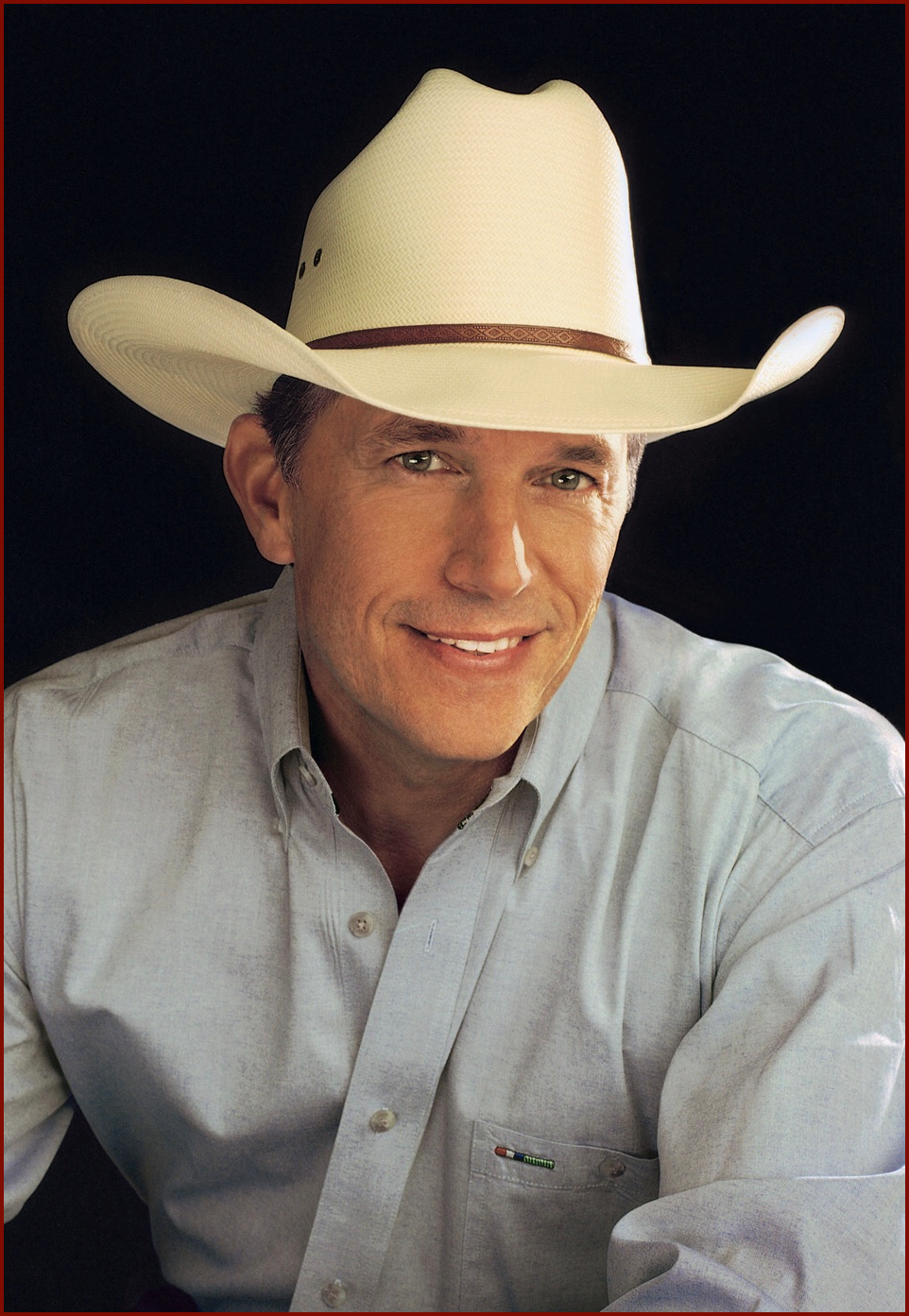 George Harvey Strait Sr. (born May 18, 1952) is a living legend of Western Swing and Traditional Texas Country music vocalizer, bandleader, histrion, and music producer. George is known as the "King of Country Swing" and is considered i of the most influential and pop recording artists of all time in whatsoever genre. He is known for his devout honey of Texas built-in Western Swing, traditional singing style, accurate cowboy persona, and being one of the start artists to bring country music back to its Texas roots and away from the polished Nashville pop country era of the 1980s.
George Harvey Strait Sr. (born May 18, 1952) is a living legend of Western Swing and Traditional Texas Country music vocalizer, bandleader, histrion, and music producer. George is known as the "King of Country Swing" and is considered i of the most influential and pop recording artists of all time in whatsoever genre. He is known for his devout honey of Texas built-in Western Swing, traditional singing style, accurate cowboy persona, and being one of the start artists to bring country music back to its Texas roots and away from the polished Nashville pop country era of the 1980s.
The push button and pull between his longing for privacy on one manus, and his love of music and pleasing his public on the other, have defined George Strait. That residual has sustained him through one of country music'south about remarkable careers. For over ii decades, he has fix the standard.
In that fourth dimension, others have had bigger-selling albums, merely none has hitting the balderdash's-eye with fans and critics akin so consistently. Others have been media darlings, but none has matched his mysterious, human-of-few-words allure. Others accept had bigger hits, only no one has constitute as many wonderful songs, or sung them and then well, so smoothly, then perfectly.
The road backside Strait'southward legendary career began in "The Strawberry Upper-case letter of the World," Poteet, Texas almost 25 miles south of San Antonio where George Harvey Strait was born on May 18, 1952. He grew up on his family's cattle ranch in nearby Pearsall, located along the beautiful Frio River.
"It wasn't exactly a land-music upbringing," chuckles George. "My dad didn't even take a tape player. When he listened to the radio, information technology was normally for the news or the moo-cow market reports."
George and older brother Buddy were mostly raised by their father, John. His parents split when George was in the fourth form, and his mother left, taking his sister with her. But John, a junior-high math teacher and rancher, was devoted to his sons. From him, George learned to rope cows and ride horses long earlier he ever wrapped his hands effectually a guitar neck.
But slowly, music began seeping into his life. By the time high school rolled around, George was playing drums and singing in garage bands.
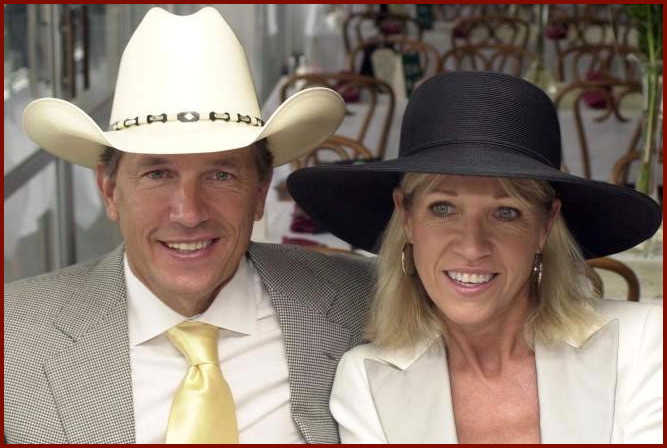 I of his boyfriend students at Pearsall High Schoolhouse was pretty Norma Voss, two years his junior. "Norma was the offset girl I ever loved," recalls George. "We knew each other forever, growing up in a small town." George asked her out, but the two drifted apart after only one date. "And then 1 twenty-four hour period I idea, 'I'g missing the boat here!' " he says. "So I called her up, and we started dating once again."
I of his boyfriend students at Pearsall High Schoolhouse was pretty Norma Voss, two years his junior. "Norma was the offset girl I ever loved," recalls George. "We knew each other forever, growing up in a small town." George asked her out, but the two drifted apart after only one date. "And then 1 twenty-four hour period I idea, 'I'g missing the boat here!' " he says. "So I called her up, and we started dating once again."
George graduated from high school in 1970 and headed to Southwest Texas State University in San Marcos, near San Antonio. After ane semester, he and Norma, fueled by idealism and hormones, friskily headed south of the edge to United mexican states and got married only to remarry more formally in Dec of 1971 to please their parents.
Young George had every intention of condign a rancher, taking over from his dad. But first, George decided he should practice his bit for his country by joining the Army and almost impossibly, that turned out to be a conclusion that would put him on the path to superstardom.
When asked where he'd similar to be assigned, George said Hawaii, "What the hell, attempt it," he recalled reasoning. He never dreamed he'd actually exist stationed on the island paradise, but that's exactly where Uncle Sam put the lucky new recruit. "Man, I got my orders to get to Hawaii, and I just could not believe it!" he says.
Newlyweds George and Norma enjoyed the serenity of the Hawaiian islands but while he was there, George found something else that literally changed his life. It was an album: Merle Haggard'southward 1970 salute to Western swing legend Bob Wills, A Tribute To The Best Damn Fiddle Player In The World. "That really turned me on to Bob Wills' music," says George.
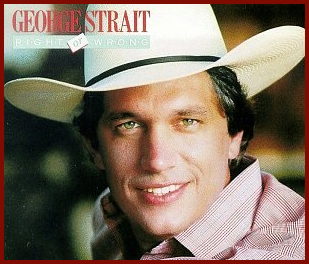 Soon George began to immerse himself, listening to endless Bob Wills records dating back to the early on 1940s. He was beginning to wonder if he might be able to follow in the footsteps of guys similar Wills, Tommy Duncan and Haggard. He had always enjoyed singing, so he bought a inexpensive guitar and a couple of Bob Wills and Hank Williams songbooks, and was on his manner. Again, George lucked out when the base commander decided to grade a band to entertain the troops. He tried out for the lead-singer position and nabbed it. Singing for the soldiers was good practise for the lifetime of stage work he didn't know withal was in shop for him. "It gave me the fourth dimension I needed to learn all nigh playing in front of people," he says.
Soon George began to immerse himself, listening to endless Bob Wills records dating back to the early on 1940s. He was beginning to wonder if he might be able to follow in the footsteps of guys similar Wills, Tommy Duncan and Haggard. He had always enjoyed singing, so he bought a inexpensive guitar and a couple of Bob Wills and Hank Williams songbooks, and was on his manner. Again, George lucked out when the base commander decided to grade a band to entertain the troops. He tried out for the lead-singer position and nabbed it. Singing for the soldiers was good practise for the lifetime of stage work he didn't know withal was in shop for him. "It gave me the fourth dimension I needed to learn all nigh playing in front of people," he says.
I more beautiful affair entered George'southward life in Hawaii. He and Norma had a girl, Jenifer, in 1972. The new family attempted to stay in the islands after George'southward Ground forces stint ended in 1975, just afterward six months the greenbacks-strapped Straits went back home.
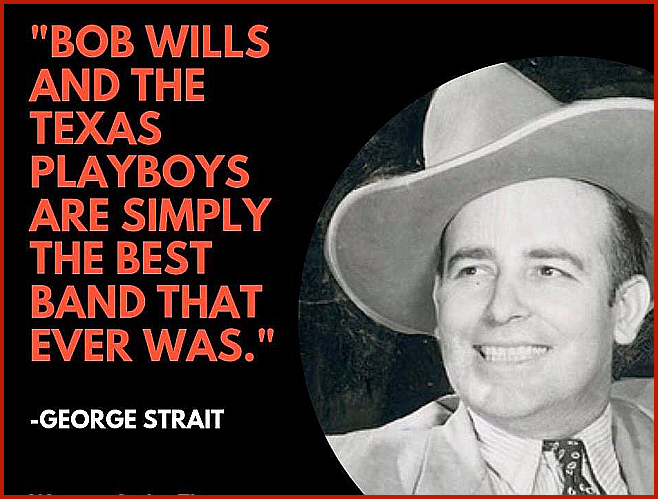 Returning to Texas, they set upwards business firm in San Marcos, and George re-enrolled at college at Southwest Texas Land, studying agriculture with the help of the G.I. Pecker. He was yet leaning toward a ranching or rodeo career, but music had become important enough to identify an ad on a bulletin lath looking for a new band. After hearing his perfect country voice, a local group fabricated up of George'southward fellow higher students eagerly signed him on.
Returning to Texas, they set upwards business firm in San Marcos, and George re-enrolled at college at Southwest Texas Land, studying agriculture with the help of the G.I. Pecker. He was yet leaning toward a ranching or rodeo career, but music had become important enough to identify an ad on a bulletin lath looking for a new band. After hearing his perfect country voice, a local group fabricated up of George'southward fellow higher students eagerly signed him on.
At 23, George was the oldest member of the Ace In The Hole Band, which debuted in October 1975 at the Cheatham Street Warehouse in San Marcos. They soon became a regular fixture at all the local clubs. "There were a lot of places we could play, and nosotros played most of them," recalls George thing-of-factly.
For his part, George was simply enjoying the honky-tonk circuit, playing traditional country and Western Swing every night in dancehalls and bars for niggling coin. The Ace In The Hole Band caught a break in 1976 when they got the take a chance to record several songs for pocket-sized, independent D Records including some of George's own tunes. "I tried to write them similar what I thought was a skillful country vocal," he says, just it was the first and final time George focused on songwriting.
Then, another break: George was invited to Nashville to sing on some demo recordings. Simply, he was met with resistance from industry gatekeepers who felt his voice was "too traditional" for the polished Music City mainstream.
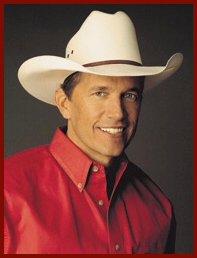 George went dorsum habitation, earning his agriculture degree in 1979 and going to work as ranch manager at the Hart Ranch in Martindale, Texas. "I was doing the ranching to supplement my income," he explains. "I actually liked it, but it certain was difficult."
George went dorsum habitation, earning his agriculture degree in 1979 and going to work as ranch manager at the Hart Ranch in Martindale, Texas. "I was doing the ranching to supplement my income," he explains. "I actually liked it, but it certain was difficult."
George was now 27, and he and Norma were expecting their 2nd child George Jr., or "Bubba," Strait, who would come forth in 1981. With domestic pressures piling up, George's musical career was start to look similar a pipage dream. "I felt similar I was spinning my wheels," he says. "I didn't want to be 42 years old and still playing the bars and honky-tonks. I was get-go to think I wasn't good enough, and maybe ought to endeavor ranching full time."
Strait decided to surrender his dream of stardom. He broke the news to his Ace In The Hole buddies that he was packing it in and signed on for a full-time job in Uvalde with a visitor that designed cattle pens.
But almost immediately, Norma saw a change in her husband. George became difficult to get along with, and was moping around their San Marcos home like a defeated man. "I figured I didn't desire to alive in Uvalde with him like that," she remembers. "I wanted him to give it one more than chance."
Norma talked George into giving music another year so a calendar week before he was supposed to report to his new job, George called and told his prospective employer that he wouldn't be coming. "Norma has always been very encouraging and supportive," says George. "Success is something she ever wanted for me, because she knew how bad I wanted it."
Soon George fabricated some other important call, this time to a old nightclub manager, Erv Woolsey. Woolsey had endemic the Prairie Rose, one of the many dancehalls George had played in Texas, and was now an executive at the MCA Nashville record label. "Isn't there some producer upward there in Nashville that you can become to exercise a session on me?" asked George.
Erv hooked his erstwhile friend up with producer Blake Mevis, and George returned to Nashville to record with him. The pair laid down several songs, but the response from the Music City brass was already familiar: too country. "I went abode with my tail between my legs," says George.
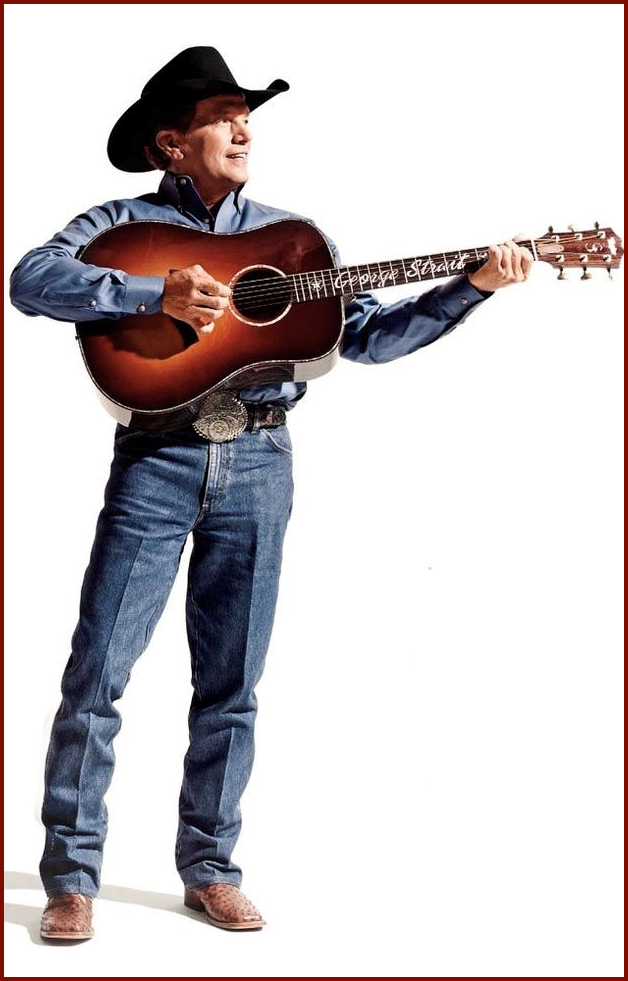 But once once more, George picked himself upwardly, dusted himself off and had another effort. George and Erv convinced another MCA exec to come to San Marcos and hear the Ace In The Hole ring in its chemical element: a honky-tonk dancehall. It worked! George was offered the gamble to record one unmarried for MCA; if that was a hit, maybe he could make an anthology. "I had my fingers crossed," says George.
But once once more, George picked himself upwardly, dusted himself off and had another effort. George and Erv convinced another MCA exec to come to San Marcos and hear the Ace In The Hole ring in its chemical element: a honky-tonk dancehall. It worked! George was offered the gamble to record one unmarried for MCA; if that was a hit, maybe he could make an anthology. "I had my fingers crossed," says George.
But almost immediately, Nashville began trying to alter George. "When I came to town wearing my Cowboy hat, all I e'er heard was, 'Take the chapeau off,' " he recalls. "Just I never would do information technology. They were trying to make me into something else, but I was too Texan, too hardheaded."
No affair. George and Erv had already found a killer vocal a little heartbroken drinkin' number called "Unwound" and were set to go. It was released and began getting radio play. It entered the charts on May 16, 1981, two days before George'southward 29th birthday, while he was even so working his 24-hour interval job as a ranch foreman in San Marcos. "Here I was driving around the ranch, and I'd hear information technology on the radio as it went up the chart," he says. "I was shocked!"
"Unwound" wound its way to No. half-dozen, and George got the get-ahead to make a full-fledged album. At present his appetite for success had been whetted. One day he walked into the MCA offices and looked at the gold albums hanging on the wall. "Yous think I'll always get 1 of those?" he asked Erv. "I don't know," replied Erv. "We'll have to run into."
Until an unproven newcomer, George didn't have much control over his debut anthology, Strait Country, and unsuccessfully resisted the popular touches producer Blake Mevis added. "The songs that we chose for that showtime album, I didn't have only a hell of a lot to say near," he says. "I did think that the bulk of the songs we cut on at that place were practiced songs, but there are some songs that, if I were to become back right now, I'd endeavour to say, 'No, we're not gonna do that.' "
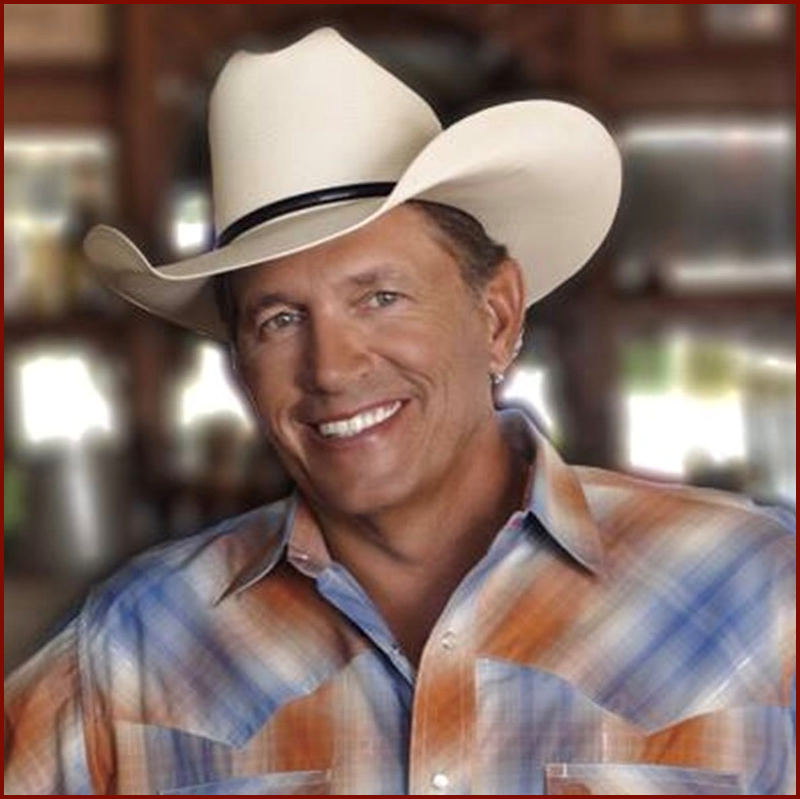 George may not have liked some of the textile, merely it worked. He was establishing a foothold on the charts "If You're Thinking You Want A Stranger (There's One Coming Home)" got all the way to No. 3, and "Fool Hearted Memory" finally brought him to the acme. For "You Look And then Expert In Love" before long to be his third No. 1 George agreed to brand his first video. "It was embarrassing, corny, syrupy, gag me," he says.
George may not have liked some of the textile, merely it worked. He was establishing a foothold on the charts "If You're Thinking You Want A Stranger (There's One Coming Home)" got all the way to No. 3, and "Fool Hearted Memory" finally brought him to the acme. For "You Look And then Expert In Love" before long to be his third No. 1 George agreed to brand his first video. "It was embarrassing, corny, syrupy, gag me," he says.
George's dislike of the clip set the tone for his entire career, which has merely included only a handful of videos in two decades. "I've never cutting one that I really liked," he confirms. "I've probably washed it a lilliputian halfheartedly, because I never actually wanted to do information technology. That's probably why they came off the way they did you lot know, you get pretty much what you put into it."
His dislike of this new promotional tool wasn't the merely fashion George was straining at the Nashville ternion. His patience was growing thin with the popular sheen beingness added to his records, when his eye was with the difficult-core Texas land and Western Swing he was still cranking out with the Ace In The Hole guys on the road dark after night.
Finally, when his 4th album was almost finished, tensions came to a head. "I've got ten tracks and I'm never going to put my voice on them," he declared to the new head of MCA, Jimmy Bowen. Until then, George had been as well intimidated in the studio to stick up for the manner he wanted to practice things but now, with several No. ane hits and an ACM Male person Vocalist of the Year award under his belt, the residuum of power had changed.
To his relief, George'southward new boss agreed with him and never over again would George Strait put his name on an album that didn't come across his standards. And moving to a more traditional-land audio didn't even mean a speed bump for George's chart numbers. On the contrary, he was spinning out smashes left and correct: "The Fireman," "Does Fort Worth Ever Cross Your Mind," "The Chair" even one of the ill-fated songs from his first Nashville recording experience in 1977, "Nobody In His Right Listen Would've Left Her," was re-recorded and sent on its way to No. 1 in May 1986.
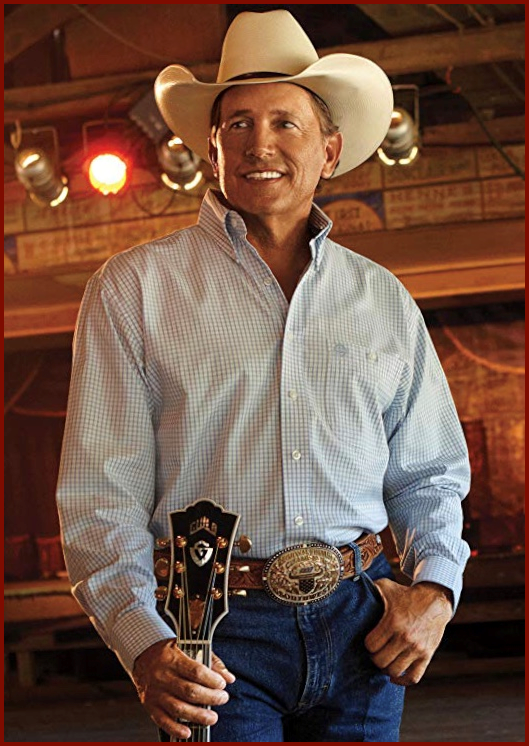 George Strait was on top of the world. And then the globe crumbled below him. On June 25, 1986, his thirteen-year-old daughter, Jenifer, was killed in a car crash south of San Marcos. George relied on family unit, friends and religion to go him through the horror of losing his firstborn child. He also cached his grief in work and was dorsum on the road only three weeks later.
George Strait was on top of the world. And then the globe crumbled below him. On June 25, 1986, his thirteen-year-old daughter, Jenifer, was killed in a car crash south of San Marcos. George relied on family unit, friends and religion to go him through the horror of losing his firstborn child. He also cached his grief in work and was dorsum on the road only three weeks later.
But George refused to give interviews for a year, and to this day has said petty publicly about his daughter'south death. An already-private man shut the door to his home life even more than tightly.
"I got even more than private after I lost my girl," he says. "That'south when I really shut things downwards. I didn't feel like talking to anybody that wasn't actually close to me." After the tragedy, getting publicity by chatting up the printing meant footling to him. "I had the attitude that aught worse could probably happen," he says, "and so this is the fashion I'thousand going to do things."
Information technology could have been a disastrous career determination only in George's case, the contrary became true. The less his fans knew nigh what was on his listen, the less they heard him speak, the more they longed to get close to him. His next album, Ocean Front end Property, became the first ever to debut at No. 1 on the country albums chart.
George put his nose to the grindstone and kept at his work. In 1989 he won the CMA's Entertainer of the Year award for the first time, an award that he actually seemed hungry for and one that seemed impossibly out of his accomplish a decade earlier. "I really wanted that thing," he says. For George, it was the biggest professional honour he could get.
The extent of his pride could be seen right on the embrace of his adjacent anthology, Livin' It Up: there was George decked out in a tuxedo, set off by a belt buckle reading "Entertainer of the Year." Information technology was a rare show of swagger from a apprehensive homo.Having reached the pinnacle of country music, George now began to take seriously something former Elvis Presley director Col. Tom Parker had been telling him that the handsome land star could be a movie star too. Only George was still skeptical. "I didn't want land music people to wait like hillbilly hicks," he explains, "because they're not."
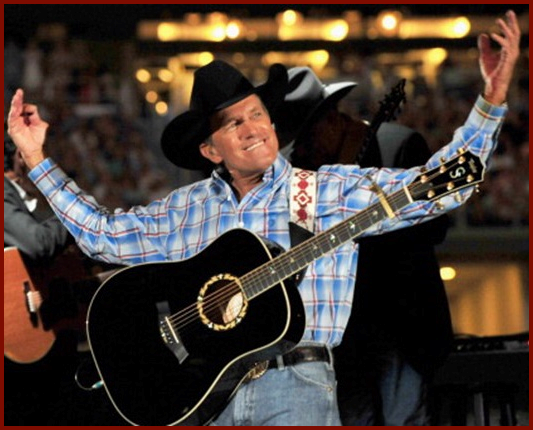 George constitute what he'd been looking for in Pure Land, the story of a country star who abandons stardom's glamour for the simple pleasures of ranch life. It was certainly something George could relate to, and he threw himself into the part with gusto. The motion-picture show took in $15 meg upon its 1992 release non a blockbuster, but a expert start for George's movie career.
George constitute what he'd been looking for in Pure Land, the story of a country star who abandons stardom's glamour for the simple pleasures of ranch life. It was certainly something George could relate to, and he threw himself into the part with gusto. The motion-picture show took in $15 meg upon its 1992 release non a blockbuster, but a expert start for George's movie career.
Now George was himself a monument in state music. He was more popular than ever, and his influence could be heard all over its new generation of stars. Guys like Alan Jackson, Clint Blackness and Garth Brooks credited George with inspiration. Garth declared that hearing "Unwound" dorsum in 1981 inspired him to become a country singer.
When he teamed with one of those admirers, Alan Jackson, the 2 sparked a controversy. Their 2000 duet, "Murder On Music Row," was a stinging indictment of the country music business organisation' abandonment of traditional sounds, and information technology became an canticle for music fans who felt the same mode.
Past then, George was the perennial headliner on the George Strait Country Music Festival, a traveling all-day extravaganza that filled stadiums beyond America. Merely fifty-fifty as his power to describe concert crowds grew in fact, practically from the moment he became a superstar in the 1980s George was slowly cutting dorsum on the number of shows he played. He loves the time spent onstage, only the travel keeps him away from home and family unit. "I'll be a country singer until I die," he says, "but I know for sure I won't be touring 'til I die. Not unless I die touring."
In the 2000s, Strait was named Creative person of the Decade by the Academy of Land Music, was elected into the Country Music Hall of Fame, and won his kickoff Grammy award for the anthology Troubador. Strait was named CMA Entertainer of the Twelvemonth in 1989, 1990 and 2013, and ACM Entertainer of the Year in 1990 and 2014. He has been nominated for more CMA and ACM awards and won more than in both categories than any other artist.
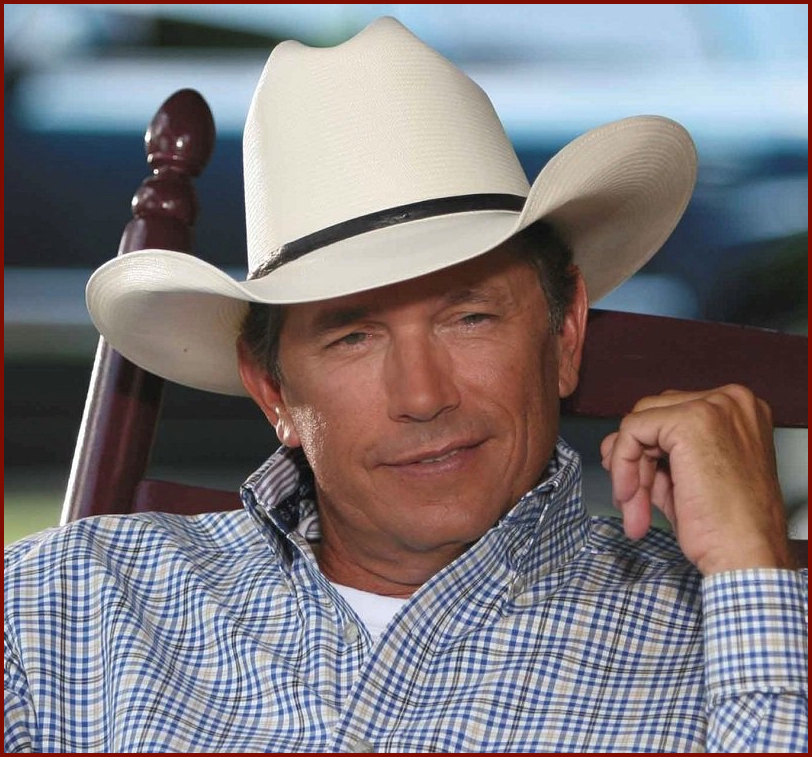 Past 2009, he broke Conway Twitty's previous record for the well-nigh number-1 hits on Billboard's Hot Country Songs nautical chart when his 44 number ane singles surpassed Twitty's 40. Counting all music charts, Strait has amassed a whopping full of 60 number-one hits, breaking a record also previously set up by Twitty, and giving him more number ane songs than any other creative person in whatever genre of music.
Past 2009, he broke Conway Twitty's previous record for the well-nigh number-1 hits on Billboard's Hot Country Songs nautical chart when his 44 number ane singles surpassed Twitty's 40. Counting all music charts, Strait has amassed a whopping full of 60 number-one hits, breaking a record also previously set up by Twitty, and giving him more number ane songs than any other creative person in whatever genre of music.
Strait is too known for his touring career when he designed a 360-degree configuration and introduced festival style tours. For example, the Strait Tours earned $99 million in three years. His concert at AT&T Stadium in Arlington, Texas, in June 2014 drew 104,993 people, marking a new tape for the world'southward largest indoor concert. Strait was successful innovating land music and returning information technology to the Bob Wills Texas born Western Swing sound, as well as attracting millions of fans from across several genres of popular music.
Strait has sold more than 100 million records worldwide, making him one of the best-selling music artists of all time. His certifications from the RIAA include xiii multi-platinum, 33 platinum, and 38 gilt albums. His acknowledged album is Pure Country (1992), which sold 6 million (6xPlatinum). His highest certified album is Strait Out of the Box (1995), which sold 2 million copies (8xPlatinum due to being a box set with four CDs). Co-ordinate to the RIAA, Strait is the 12th best-selling album recording artist in United States history.
For the moment, the rest in George Strait'due south life between home and the road, between the spotlight and the ranch, between the roar and the tranquillity is just right. He spends enough time on the road to satisfy his fans, just not plenty to fire out. He makes an album every year, merely even that takes a minimum of fuss he carefully considers vocal choices for months, simply can knock out a flawless studio gear up in a few days' work.
The rest of the fourth dimension, he's out on the lake, hearing those crickets. At abode, hearing the warm voices of Norma and his son Bubba'due south family. Or out on his ranch, hearing that clop, clop, clop of horse's hooves beneath him, carrying him forward into a still-unfolding futurity. One day they'll behave him into the sunset only not yet.
"I feel real comfortable with my state of affairs now," concludes George. "As long as people want to see me, I'm going to keep going."
STRAIT TO YOU
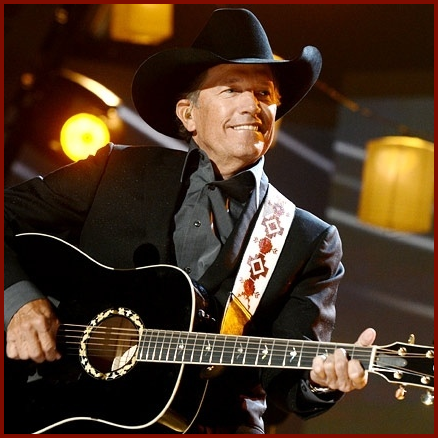 "Nosotros're going back to playing the arenas and I'thou really looking forward to it"
"Nosotros're going back to playing the arenas and I'thou really looking forward to it"
George Strait is gearing up for his exciting autumn bout with a make new game plan: playing arenas, instead of massive stadiums, to requite his show a more intimate feel.
For the past ten years, George headlined the George Strait Country Music Festival, a swirling caricature that played huge outdoor venues and featured a full mean solar day of music, a large festival area and a carnival atmosphere. It was country'south simply all-stadium tour, setting a loftier standard for the multi-deed festivals of Brooks & Dunn and other stars.
While his stadium tours have disrepair attendance records, George misses the personal contact with his fans. "We're going dorsum to playing the arenas and I'm really looking frontwards to it," says George. "We definitely had a great time doing the stadiums, just I'm excited about seeing some faces once again. Y'all can tell a divergence, and I recall it will be a fun change of pace."
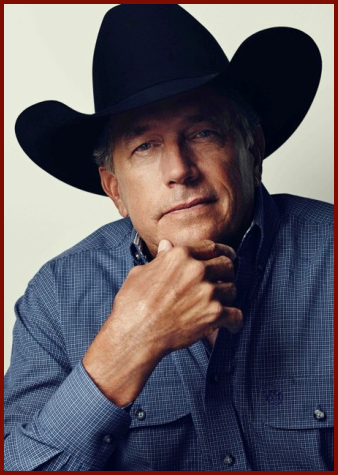 And every year, fans excitedly await forward to George's road shows. Since he vaulted to superstardom in the mid-1980s, George has consistently ranked equally country's top-drawer concert human action.
And every year, fans excitedly await forward to George's road shows. Since he vaulted to superstardom in the mid-1980s, George has consistently ranked equally country's top-drawer concert human action.
"It'due south so great to accept fans similar that," says George with a smile. "Information technology'due south just unbelievable to me that they're still coming out to the shows."
George actually shouldn't be that surprised. He supplies what the fans need a catalog of archetype hits, delivered in a smooth, easygoing style and without the over-the-elevation theatrics that mark many of today'southward live music events.
"I'one thousand not a comedian," observes George of his no-nonsense approach to performing. "I can't even tell a good joke. The people come out to hear me sing, so that'due south what I go out and do."
And in that location'due south plenty of surefire material to deliver. Over his near 40-year career, George has racked upwardly a whopping sixty No. 1 hits, more any artist in any genre. All of his past albums have sold at to the lowest degree one million copies each.
Get ready for a magical evening when George Strait takes his spectacular evidence to an arena most you. Every bit George himself promises: "We're going to requite the fans their money's worth!"
George Strait & The Texas Playboys - Correct or Wrong
George Strait - Big Balls In Cowtown
George Strait - Take Me Back to Tulsa
George Strait - Amarillo By Morning
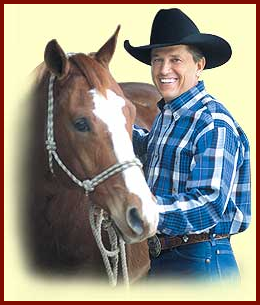
RANCHER AND ROPER "I can't brand any money ranching," says George, "but I raise horses considering I love it." George Strait relishes life on the range with his family in south Texas.
BY LARRY HOLDEN
George Strait wears the office of cowboy just as easily as he slips into his Wranglers each morning time. That's because he is a cowboy with well-honed riding and roping skills and a true beloved of ranching.
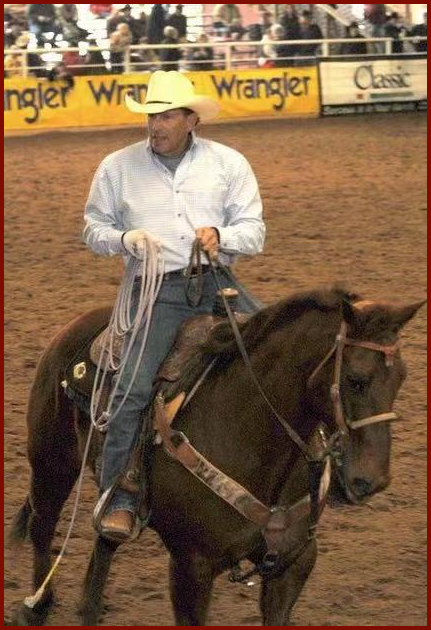 "I ride every day when I'm home," reveals George of the time he spends on his sprawling south Texas ranch, away from performing and recording. "When I'g off," he confesses, "I have my other life, my own life, that I choose to live."
"I ride every day when I'm home," reveals George of the time he spends on his sprawling south Texas ranch, away from performing and recording. "When I'g off," he confesses, "I have my other life, my own life, that I choose to live."
That life revolves effectually George'south passion for ranching and team roping, a rodeo consequence in which he actually competes. "I enhance horses," drawls George, calculation, "I raise cattle because I dear it. If I can go some money back for it, that'due south good. Only if I can't, I'd nevertheless practise it."
The steers he raises are for the George Strait Team Roping Classic, a premier two-day team roping issue held each year in Texas. Information technology's important to George that the acme rodeo stars competing in the San Antonio result have the all-time steers to rope. "We started providing our ain stock," notes George. "That'due south worked out meliorate for us. Before, every twelvemonth we got something a little different. Now nosotros know exactly what type of stock we're getting."
"I honey to rope," confesses George, seen here getting his lariat around a calf in 1999. George an excellent team roper himself with a razor-sharp competitive spirit and his older brother Buddy started the George Strait Squad Roping Classic xx years agone. He and Buddy compete each yr in the event, along with George's 21-year-old son, George Jr., and Buddy's sons, Trey and Walker.
"I dearest to rope," confesses George, seen hither getting his lariat around a calf in 1999. George's dearest of ranching has been passed on to George Jr. They spend lord's day drenched days and starry nights next running the ranch. "It's fun doing everything I tin with my son," declares proud papa George.
And, like father, similar son George Jr. is an accomplished team roper, excelling kickoff on the loftier schoolhouse rodeo circuit and now as a member of the Texas A&M University rodeo team. George and Norma, his wife of xxx years, are fixtures at George Jr.'south team roping events. "I just love watching him," gushes George. "He'south very good."
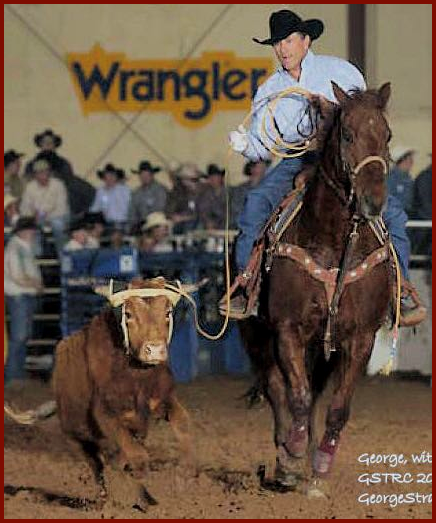 The Strait riding and roping talents are natural. George grew upward in Pearsall, Texas, with ranching in his claret. Long before he thought about singing a notation, his heart was set on beingness a rancher like his dad, John Strait, who taught George the effectively points of horsemanship.
The Strait riding and roping talents are natural. George grew upward in Pearsall, Texas, with ranching in his claret. Long before he thought about singing a notation, his heart was set on beingness a rancher like his dad, John Strait, who taught George the effectively points of horsemanship.
"About the time nearly immature men were playing Footling League baseball," recalls George, "I was learning to rope and ride."
George looked frontward to spending weekends on the family ranch in nearby Big Wells. As he grew into a young human, he embraced the thought of being a full-fourth dimension rancher. Even as he put his high-flying country music dream in movement playing area honky-tonks, he kept his feet on the footing by managing a cattle ranch from sunrise to sunset. And he studied agronomical scientific discipline at Southwest Texas Land University in San Marcos the perfect degree for a successful rancher.
Tractor Supply Company hired George to tout their product line George'southward existent-life rancher image has made him the perfect pitchman for advertisers, including Wranglers and Tractor Supply Visitor. And George's "like a rock" dependability as artist and rancher has matched seamlessly with General Motors' Chevy Truck Partition for shut to a decade. Chevy considers George the most dependable, longest lasting country music performer. George has appeared in numerous ads for Chevy Trucks, and Chevy, in plow, sponsored his George Strait State Music Festival stadium tours.
With his career, family life, ranching and team roping hitting on all cylinders, George is proof that in that location truly is a difference in living and living well, as his latest No. 1 proclaims.
"I'm real fortunate right at present," he admits with a satisfied smile, "to have the time to exercise all the things I really want to do and enjoy myself."
George Strait's Roping Squad || Interview (1/2)
George Strait's Roping Squad || Interview (2/ii)
Source: https://birthplaceofwesternswing.com/strait.html